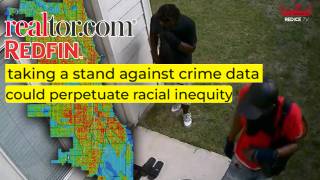Minority Report is real: FBI wants to use social networks to prevent future crime
Source: digitaltrends.com
The FBI is looking into the creation of a new application that would allow them to not only monitor on-going threats, but also predict potential terrorist attacks and other crimes before they even happen. Here’s everything you need to know, and why you should be concerned.The Federal Bureau of Investigation is looking into the creation of an application that would allow it to better mine social media content, in an attempt to more accurately identify, target and fight “emerging threats” in real-time. The application could also be used to predict potential threats before they even happen.
According to a Request for Information (RFI) posted to the Federal Business Opportunities website, the FBI says it hopes to “determine the capability of industry to provide an Open Source and social media alert, mapping, and analysis application solution.” This tool would allow the FBI to “quickly vet, identify, and geo-locate breaking events, incidents and emerging threats” using “publicly available” information posted to social networks, like Facebook and Twitter, as well as local and national news publications.
Big Brother 2.0
Of course, monitoring social media is nothing new for the law enforcement community. At present, however, it’s simply too ineffectual and inefficient for the FBI’s needs.
“Social media is a valued source of information to the [FBI’s Strategic Information and Operations Center (SIOC)] intelligence analyst in routinely monitoring events,” says the RFI. “Analysts have standing intelligence issues that they monitor as a matter of daily course around the globe. It is also seminal in their effort to provide initial information about single events of significance to law enforcement. Social media has become a primary source of intelligence because it has become the premier first response to key events and the primal alert to possible developing situations.”
The application the FBI hopes to have built would simply make this process easier and more thorough.
Here’s how the FBI envisions the app working: The information gathered from news and social media outlets would be overlaid onto a digital map, pinpointing the location of the “breaking events,” along with all other relevant contextual data. Additional information, including US domestic terror data, worldwide terror data, the location of all US embassies, consulates and military installations, weather conditions and forecasts, and traffic video feeds, would also be overlaid on the map.
A robust search feature would also be incorporated into the app, which would allow the ability to “instantly search and monitor key words and strings in ‘publicly available’ tweets across the Twitter Site and any other ‘publicly available social networking sites/forums,” according to the RFI. The FBI wants the search function to allow for simultaneous key word searches “that can look at 10 or 20 separate incidents/threats at the same time within the same ‘window.’” The ability to monitor tweets and other social media data in a minimum of 12 foreign languages, and to “immediately translate” those posts into English, is also outlined as a required feature of the application.
The future is now
All of that seems fairly straight forward. In fact, we are surprised the FBI doesn’t already have such an application at their disposal, since all of the features it outlines are well within the capabilities of a skilled software development team. Not to mention the fact that much of what the FBI hopes to use already exists in different parts. Websites like OpenStatusSearch.com, YourOpenBook.org, TweetScan.com and Tweepz.com make it possible to quickly and easily search for key words being posted publicly to Twitter and Facebook. All the FBI’s dreamed-up app would do is combine these features into a single product, and expand them with additional governmental and law enforcement data, and mapping tools.
However, the FBI doesn’t just want to know about what’s happening now; it also wants to predict events that are about to happen — to predict the future. If that sounds suspiciously like Minority Report, you’re not alone.
“Social media will be critical to meeting the intelligence objectives stated above because it provides unique access to communications about the special event [i.e. political conventions, national holidays, or sporting events] in advance of its occurrence,” reads the RFI.
[...]
Read the full article at: digitaltrends.com
Video from: YouTube.com
Video from: YouTube.com
Video from: YouTube.com























